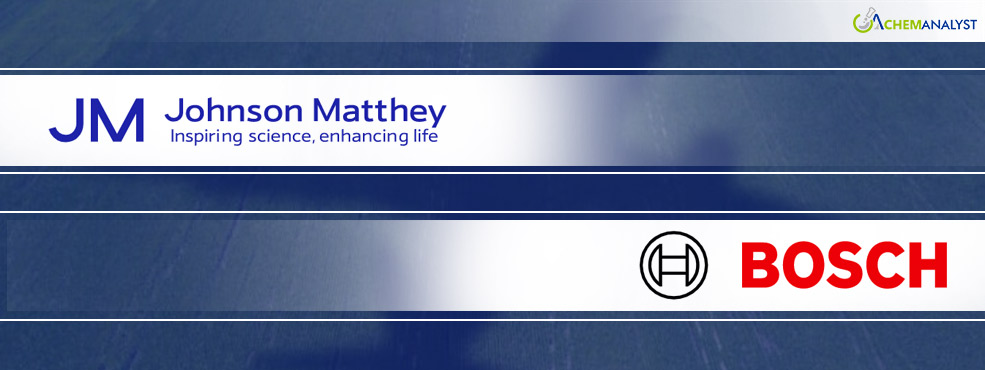Welcome To ChemAnalyst

Johnson Matthey (JM), a global leader in sustainable technologies, and Bosch, a leading automotive industry supplier, have entered into a long-term collaboration to accelerate the development and production of zero-emission hydrogen fuel cell technology. This partnership is focused on manufacturing catalyst-coated membranes (CCMs), a critical component in hydrogen fuel cell stacks, which will play a key role in the transition to cleaner mobility solutions.
As the automotive industry moves toward decarbonization, a diverse range of powertrain technologies is required to meet the needs of various vehicle segments. Hydrogen fuel cells offer a promising alternative for long-distance, heavy-duty transportation, providing a clean and efficient energy solution. These electrochemical devices generate electricity by combining hydrogen and oxygen, with the only by-product being pure water. This makes fuel cell electric vehicles (FCEVs) a viable zero-emission option, particularly for commercial and long-haul transport.
Under the agreement, JM will supply its high-performance CCMs for integration into Bosch’s innovative, scalable fuel cell power module. Bosch has designed this module to be compact and highly adaptable, making it well-suited for commercial vehicles that require extended range and operational efficiency. By leveraging JM’s expertise in advanced material science and Bosch’s cutting-edge engineering capabilities, the two companies aim to enhance the durability, efficiency, and overall performance of fuel cell technology. This collaboration is expected to contribute significantly to the commercialization and adoption of hydrogen-powered mobility.
The partnership was officially marked at Bosch’s fuel cell center in Stuttgart-Feuerbach, Germany, where executives from both companies gathered to celebrate this milestone. Anish Taneja, Chief Executive of JM Hydrogen Technologies, expressed enthusiasm about the collaboration, stating, “JM is thrilled to be joining forces, exploring and developing future possibilities to accelerate cleaner mobility and energy generation.” His statement underscores the commitment of both companies to driving innovation in hydrogen fuel cell technology.
Beate Grota, Executive Vice President of Engineering Power Solutions at Bosch Mobility, also highlighted the significance of this partnership. “The fuel cell technology for mobile applications is technologically ready for widespread use. Our partnership aims to further increase the performance and efficiency of the fuel cell stacks,” she said. This statement reinforces the idea that hydrogen fuel cells are nearing large-scale deployment, and advancements in CCM technology will play a crucial role in making this a reality.
As global demand for sustainable transportation solutions rises, hydrogen fuel cells are emerging as a critical technology for reducing carbon emissions, particularly in sectors that require high energy density and long operational hours. This collaboration between Johnson Matthey and Bosch represents a major step toward the large-scale adoption of hydrogen fuel cells, paving the way for a cleaner and more sustainable future in mobility and energy generation.
We use cookies to deliver the best possible experience on our website. To learn more, visit our Privacy Policy. By continuing to use this site or by closing this box, you consent to our use of cookies. More info.
